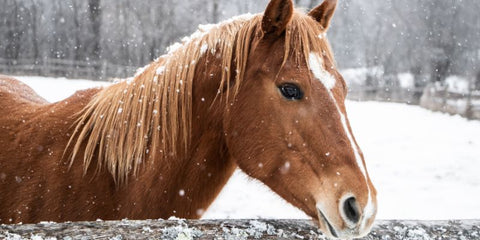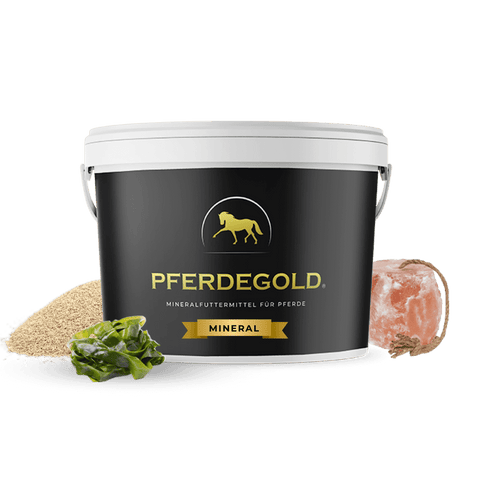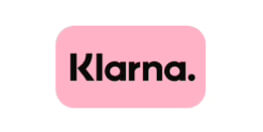
Florian ist aufgewachsen auf einem Bauernhof. Umgeben von Pferden, entdeckte er früh seine Faszination für diese majestätischen Tiere. Inspiriert von seiner reitbegeisterten Mutter, entwickelte er das Nahrungsergänzungmittel - Pferdegold. Seine tiefe Verbundenheit zur Natur und die leidenschaftliche Hingabe zu Pferden trieben ihn an, sein Unternehmen zu gründen.
A strong immune system for horses: How to protect your horse in autumn and winter
A strong immune system in horses is crucial, especially during the cold season. Autumn and winter put your horse's immune system to the test – stable keeping, temperature changes and increased contact with germs challenge the immune system every day.
You know that feeling? As soon as the stable season begins, your horse starts coughing, seems weak, or struggles with skin problems. Many horse owners experience the same thing every year – and wonder how they can break this cycle. The good news: With the right preparation, you can strengthen your horse specifically before the first problems arise.
In this comprehensive counselor you will learn everything important about the Immune system in horses : from the signs of a weakened immune system to the most important influencing factors to holistic strategies for strong immune systems in autumn and winter.

Healthy horse in autumn - Strong immune system protects in the cold season
What is the horse’s immune system?
The immune system is the body's defense system that protects your horse from pathogens such as viruses, bacteria, and parasites. It consists of a complex network of cells, tissues, and organs.
How does the immune system work:
The immune system works on two levels: Innate immunity reacts immediately to invaders, while acquired immunity develops specific defenses against known pathogens. Both systems must work together optimally to keep your horse healthy.
Special challenges in autumn and winter:
The stresses vary depending on the season: in autumn, changes in pasture and temperature fluctuations place a strain on the horse's immune system; in winter, dry stable air, less exercise and closer animal contact place additional strain on the horse's immune system.
The critical phase often begins unnoticed: While your horse still gets all of its nutrients from fresh grass on the pasture in summer, winter feeding with hay and concentrated feed is often not enough to cover the increased need for immune-relevant vitamins and trace elements.
Recognizing a weakened immune system: correctly interpreting warning signals
The peril of a weakened immune system: It often only becomes apparent through recurring infections or gradual declines in performance. Early detection allows for timely countermeasures.
🚨 Clear warning signs:
- Frequent respiratory infections or recurring cough
- Slow wound healing or persistent skin problems
- Persistent fatigue and reduced willingness to perform
- Susceptibility to fungal infections or mud fever
👁️ Pay attention to subtle signs:
- Dull, lackluster coat despite good care
- Increased sweating during low exertion
- Sensitivity when touching the affected area
- Increased flaking and rough skin
💡 Pro tip: The transition from pasture to stable is a critical phase. Many horses show the first signs of a weakened immune system during this time – now is the ideal time for preventative measures before expensive veterinary bills arise.

Attentive health checks - early detection strengthens the immune system
What weakens the immune system? Understanding the causes
A weakened immune system in horses is caused by a variety of factors. Especially in autumn and winter, multiple stressors affect the immune system simultaneously.
⚡ The main factors:
The immune system is usually stressed by housing conditions: poor stable air, too little exercise, social isolation or irregular daily routines continuously stress the immune system.
Incorrect training management is often responsible: overtraining without sufficient regeneration, abrupt increases in workload or training sick horses permanently weaken the immune system.
The often overlooked factor: nutrient deficiency. Many horse owners are unaware that their basic diet contains critical gaps. Hay alone cannot meet the horse's needs for selenium, zinc, or vitamin E—especially in winter when metabolism is running at full speed.
Particularly at risk are older horses, horses under competition stress, pregnant mares, young horses with immature immune systems, or horses after illnesses and antibiotic treatments.
Holistic strategies for a strong immune system
A strong immune system is not created by a single factor, but by the optimal interaction of posture, training, stress management and nutrition.
🏠 Optimize posture:
Optimal stable climate:
- Good ventilation without drafts for healthy airways
- Sufficient daylight for vitamin D production
- Clean, dry bedding to reduce germs
Exercise and social contact:
- Daily grazing or paddock time - even in winter
- Social contact with conspecifics reduces stress
- Regular exercise activates the immune system
💪 Design your training intelligently:
Immune-friendly training:
- Plan sufficient regeneration phases
- moderate, regular exercise instead of extreme training
- Stop immediately at the first sign of illness
Stress reduction:
- Continuous daily routines create security
- Tournaments and transport put strain on you - allow time for recovery
- Slowly getting used to new situations
🔍 Regular health checks:
- Daily monitoring of appetite and behavior
- Weekly weight control by eye
- Regular deworming and vaccinations according to plan

Daily exercise in winter - activity strengthens the natural defenses
The role of nutrition: Why optimal basic nutrition is crucial
Husbandry and training form the foundation – but without the right nutrients, even the best management cannot achieve its full effect. The reality is this: Most horses are undernourished, unbeknownst to their owners.
Typical supply gaps in winter feeding:
- Hay loses up to 50% of its vitamins during storage
- Selenium deficiency is widespread in many regions of Germany
- Zinc and copper deficiency often only becomes apparent after months
- Vitamin E is critical during the stable season without grazing
These nutrients are essential for the immune system:
- Vitamin A: First line of defense - healthy mucous membranes as a barrier against pathogens
- Vitamin E & Selenium: The dream couple for antioxidant cell protection
- Zinc: Without zinc, no functioning immune cells – a deficiency often only becomes apparent late
- B vitamins: Energy for defense cells and protection against stress
- Copper: Essential for the formation of white blood cells
The good news: With targeted basic nutrition, you can close these gaps – and give your horse what hay and concentrated feed alone cannot provide.

Balanced mineral supply - foundation for strong defenses
Pferdegold Mineral: The all-rounder for optimal basic nutrition
Over 60,000 horse owners already trust Pferdegold Mineral – and for good reason. It provides all the essential nutrients your horse needs for a functioning immune system in a balanced ratio.
The optimal nutrient combination:
- Vitamins A & E: For healthy mucous membranes and antioxidant cell protection
- Selenium: In organic form from selenium yeast – for optimal availability
- Zinc, copper & manganese: The essential trace elements for strong immune function
- Complete B vitamin complex: Supports energy metabolism and stress resistance
- Calcium, magnesium, phosphorus: Balanced basic mineralization for all metabolic processes
⚠️ Important note: P ferdegold Mineral is not related to the immune deficiency described in this article. It does not treat any diseases and is not a substitute for veterinary diagnosis or treatment. This supplement can only be used as preventative support for basic care in healthy horses.

Pferdegold® Mineral
A true all-rounder for optimal basic mineralization of your horse. Supports the needs-based supply of all essential vitamins, minerals, and trace elements. Made in Germany, grain-free, and with a 30-day money-back guarantee.
Order nowStrengthen your immune system: Your annual plan for autumn and winter
Building a strong immune system takes time and consistency. The most common mistake is not reacting until the horse is already sick. With this plan, you'll be one step ahead and guide your horse healthily through the cold season.
Late Summer (August/September) - Act now
- Health check at the vet - check immune status
- Refresh vaccinations for optimal protection
- Deworm after stool sample
- Changing feeding: Ensure basic nutrition before problems begin
Autumn (October/November) - Critical phase
- Slow transition to stable keeping
- Daily exercise even in bad weather
- Increased attention to first signs of infection
- Intensify stable hygiene
Winter (December - February) - Hold on
- Consistent implementation of all measures
- Special care in sub-zero temperatures and when changing stables
- Sufficient roughage for constant digestive heat
- Regular weight control
Spring (March/April) - Don't let up
- Slow transition back to pasture farming
- Grazing gradually over 2-3 weeks
- Spring check at the vet
- Training structure after the winter break
💰 Investing in health: With our double pack offer, optimal basic nutrition costs just €1.25 per day – less than a cup of coffee. In return, your horse receives a complete mineral supply for two months. Many of our customers report that their horses are significantly more robust through the fall and winter since switching.

Successful winter prevention - Holistic strategy ensures strong defenses
Frequently asked questions about the horse's immune system
How long does it take to strengthen the immune system?
Noticeable improvement usually occurs after 4-6 weeks of consistent implementation. Sustainable development takes 3-6 months. Important: Start now, not waiting until the first cough!
Can you overtrain your immune system?
No, but excessive stress from overly intense training or chronic stress weakens the immune system. Balance is crucial.
Isn't good hay enough?
Unfortunately not. Hay covers the basic energy and crude fiber requirements, but not the supply of trace elements and vitamins. Selenium, zinc, and vitamin E are particularly critical.
Are older horses more susceptible to infections?
Yes, immune function declines with age. Optimal posture, moderate exercise, and a continuous supply of nutrients are especially important .
What role does intestinal health play?
A key one! Approximately 70% of the immune system is located in the gut. Adequate roughage, gradual feed transitions, and stress reduction are essential.
Conclusion: Act now, benefit later
A strong immune system in horses is the result of many factors working together harmoniously. It's not about individual measures, but rather a holistic approach that includes husbandry, training, stress management, and needs-based nutrition.
The most important findings:
- Posture and training have a greater influence than often assumed
- Stress reduction is usually as important as nutrient supply
- Prevention begins in late summer, not with the first cold
- Most horses have gaps in their care - without their owners knowing
The difference between a healthy winter and months of fighting infections often lies in small but consistent measures. The best time to start was yesterday – the second best is now.
IMPORTANT:
Pferdegold is not a substitute for veterinary diagnosis or treatment. The information contained in this article is for general informational purposes only and is intended to help improve your horse's well-being.
Pferdegold Mineral is not related to any immune deficiencies or diseases described in this article. It does not treat any diseases and is not a substitute for veterinary diagnosis or treatment. This supplement can only be used as preventative support for the needs-based basic care of healthy horses.
















